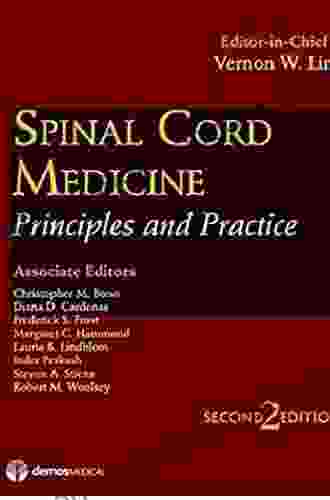The Theory of Moral Sentiments: A Journey into the Heart of Human Morality

In the annals of philosophical inquiry, "The Theory of Moral Sentiments" stands as a beacon of enlightenment, illuminating our understanding of human morality and its intricate workings. Penned by the renowned Scottish philosopher and economist, Adam Smith, this seminal treatise delves into the depths of our moral compass, exploring the origins of our ethical intuitions and the foundations of a just and virtuous society.
The Cornerstone of Morality: Sympathy
At the heart of Smith's moral theory lies the concept of sympathy. He argues that humans possess an innate capacity to empathize with others, to share their feelings and experiences, and to be affected by their well-being. This empathetic connection forms the bedrock of our moral sentiments, guiding our actions and shaping our judgments.
4.4 out of 5
| Language | : | English |
| File size | : | 5437 KB |
| Screen Reader | : | Supported |
| Print length | : | 446 pages |
| X-Ray for textbooks | : | Enabled |
Smith believed that sympathy enables us to transcend our own self-interest and to consider the welfare of others. As we witness the suffering or joy of another, we are moved to act in a way that alleviates their pain or contributes to their happiness. This empathetic response is not merely a passive emotion, but a driving force that propels us towards ethical behavior.
The Moral Observer and the Impartial Spectator
Central to Smith's theory is the notion of the moral observer, an impartial spectator who evaluates our actions and sentiments. As we engage in any course of conduct, we imagine ourselves as being observed by this impartial judge. The moral observer assesses our actions, taking into account not only our intentions but also the likely consequences of our choices.
By internalizing the perspective of the moral observer, we are able to gain a more objective view of our own actions and to identify any inconsistencies between our behavior and our moral principles. The moral observer serves as a constant reminder of the ethical standards that we should strive to uphold.
The Virtues of Justice and Benevolence
From the principle of sympathy, Smith derives two fundamental virtues: justice and benevolence. Justice, according to Smith, is the virtue of respecting the rights and interests of others. It entails acting fairly and impartially, without allowing our own biases or self-interest to cloud our judgment.
Benevolence, on the other hand, is the virtue of actively promoting the well-being of others. It involves going beyond mere justice and extending kindness, compassion, and generosity to those around us. Together, justice and benevolence form the pillars of a virtuous and ethical society.
The Enduring Legacy of "The Theory of Moral Sentiments"
"The Theory of Moral Sentiments" has had a profound and lasting impact on the field of ethics. Its emphasis on sympathy as the foundation of morality has influenced countless philosophers and scholars, including Immanuel Kant, David Hume, and Jeremy Bentham. Smith's work has also shaped our thinking about politics, economics, and social policy.
In today's world, where ethical challenges abound, "The Theory of Moral Sentiments" remains a timeless guidepost, offering insights into the nature of human morality and the virtues that underpin a just and flourishing society. Its principles continue to resonate with readers, inspiring them to reflect deeply on their own ethical choices and to strive for a life of virtue and compassion.
: A Tapestry of Moral Insights
"The Theory of Moral Sentiments" is an intellectual masterpiece, a tapestry of moral insights that has shaped our understanding of ethics for centuries. Adam Smith's profound exploration of sympathy, the moral observer, and the virtues of justice and benevolence provides a timeless framework for navigating the complexities of human morality.
Whether you are a scholar, a student, or simply someone seeking a deeper understanding of the human condition, "The Theory of Moral Sentiments" is an essential read. Its insights will challenge your assumptions, broaden your perspective, and inspire you to live a life of ethical integrity and compassion.
Embrace the journey into the heart of human morality with "The Theory of Moral Sentiments." Let its wisdom guide you towards a life of virtue and a world where empathy and justice prevail.
4.4 out of 5
| Language | : | English |
| File size | : | 5437 KB |
| Screen Reader | : | Supported |
| Print length | : | 446 pages |
| X-Ray for textbooks | : | Enabled |
Do you want to contribute by writing guest posts on this blog?
Please contact us and send us a resume of previous articles that you have written.
 Book
Book Novel
Novel Page
Page Chapter
Chapter Text
Text Story
Story Genre
Genre Reader
Reader Library
Library Paperback
Paperback E-book
E-book Magazine
Magazine Newspaper
Newspaper Paragraph
Paragraph Sentence
Sentence Bookmark
Bookmark Shelf
Shelf Glossary
Glossary Bibliography
Bibliography Foreword
Foreword Preface
Preface Synopsis
Synopsis Annotation
Annotation Footnote
Footnote Manuscript
Manuscript Scroll
Scroll Codex
Codex Tome
Tome Bestseller
Bestseller Classics
Classics Library card
Library card Narrative
Narrative Biography
Biography Autobiography
Autobiography Memoir
Memoir Reference
Reference Encyclopedia
Encyclopedia Sarah Addison Allen
Sarah Addison Allen Adolf Hackmack
Adolf Hackmack Genevieve Gornichec
Genevieve Gornichec Marilyn Dumont
Marilyn Dumont Abiola Afolayan
Abiola Afolayan Yen Le Espiritu
Yen Le Espiritu Mandy Hale
Mandy Hale Peter Inglis
Peter Inglis Achal
Achal Larry Smith
Larry Smith Stephany Travers
Stephany Travers George Creel
George Creel E P Clark
E P Clark Adam Oyebanji
Adam Oyebanji Elizabeth Wilson
Elizabeth Wilson A Siegel
A Siegel Abigail Wilson
Abigail Wilson Allie Aller
Allie Aller Tori Randolph Terhune
Tori Randolph Terhune Raven Dark
Raven Dark
Light bulbAdvertise smarter! Our strategic ad space ensures maximum exposure. Reserve your spot today!

 Salman RushdieSmall Secret Smile: A Literary Masterpiece That Illuminates the Human Heart
Salman RushdieSmall Secret Smile: A Literary Masterpiece That Illuminates the Human Heart Ralph Waldo EmersonFollow ·14.3k
Ralph Waldo EmersonFollow ·14.3k Garrett PowellFollow ·19.3k
Garrett PowellFollow ·19.3k Jessie CoxFollow ·4k
Jessie CoxFollow ·4k Donald WardFollow ·3.1k
Donald WardFollow ·3.1k Dale MitchellFollow ·7.4k
Dale MitchellFollow ·7.4k Dan BellFollow ·17k
Dan BellFollow ·17k George BellFollow ·3.2k
George BellFollow ·3.2k Jean BlairFollow ·10.4k
Jean BlairFollow ·10.4k

 Justin Bell
Justin BellUnlock National Biology Success: The Ultimate Guide to...
Mastering the Fundamentals: A Comprehensive...
 Luke Blair
Luke BlairAC/DC: The Early Years with Bon Scott – A Thunderstruck...
In the annals of rock and roll history, few...

 Darren Nelson
Darren NelsonSpinal Cord Medicine Second Edition: The Comprehensive...
The second edition of Spinal Cord Medicine...

 Cole Powell
Cole PowellArabian Horse Training: Unlock the Secrets for a...
Indulge in the captivating world of Arabian...

 Oscar Wilde
Oscar WildeRevise Curriculum For Excellence SQA Exams: The Ultimate...
The Scottish...

 David Peterson
David PetersonEndoscopic Ear Surgery: A Comprehensive Guide for...
Endoscopic Ear...
4.4 out of 5
| Language | : | English |
| File size | : | 5437 KB |
| Screen Reader | : | Supported |
| Print length | : | 446 pages |
| X-Ray for textbooks | : | Enabled |










